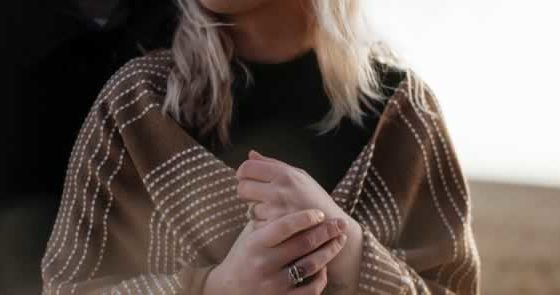After a childhood peppered with relational and attachment trauma, I survived—barely. I’d only begun to understand how early experiences shaped me. In the span of six months after graduating from college, I’d become engaged, secured a job in banking, broken off the engagement, quit my newly acquired job, moved to a different city, and moved home again. I assessed the damage and believed my life had thoroughly ended.
Emotionally, I was in a rocky place. My trust in my own sense of direction and purpose had been lost after my relationship with my fiancé disintegrated. Our breakup reinforced my belief that I needed to perform to receive love and validated my belief that I wasn’t enough, especially because I was part of a broken family and carried deep wounds.
God Spoke in My Pain
And yet, in the midst of my deep grief over what felt like numerous failures, I experienced a keen sense of God’s presence within me. I listened and waited, and I felt prompted to do something outside my usual cautious nature: Visit a city halfway across the country by myself to discern whether I should move there. What was I being called to do? I didn’t know yet. I only knew this: God was asking me to take a risk. In the past, I often felt I had too much to lose. This time, I knew I wanted God’s peace and direction more than anything. My budding career and an entire season of life were over or ending, but I was willing to head to Denver if that was what it would take to gain a sense of wholeness. I finally had found a renewed sense of hope and purpose.
The last thing I thought I needed—or expected to do there—was to meet a man.
The day I arrived, I met the man I would marry at a concert.
My friend had set up a “chance” meeting between the two of us. My heart was raw, but he was kind, funny, and handsome, and a balm to my weary self. We hit it off immediately. Yet at certain times, unwelcome thoughts would intrude: I believed if this man truly knew my story—and me—he wouldn’t like me, much less pursue a relationship with me. I felt sure I was too unlovable, even though I wanted to be loved. I wanted this new man in my life, Brendan, to be with me, to care about me, to validate me. But I also tried to scare him off—all within a five-minute span of time.
Sounds pretty straightforward, right?
Push and Pull of Fear
I gave my future husband a constant push and pull because I was afraid. I was terrified he would love me and leave me. I hid my fear with feigned self-confidence—sometimes I could believe the best about myself. But always it came down to this truth: Growing up, I had experienced significant losses of trust in my parents, and this affected everything in my life. As our relationship developed, Brendan gave me hope that he could be a safe person by the ways he respected my boundaries, time, and energy—but my body was still catching up to what my mind somewhat knew.
I didn’t realize then that our wounds often surface only when we feel physically or emotionally safe. Once we are out of survival mode, our bodies, minds, and spirits can finally bear to consider our stories and the reasons we are so emotionally dysregulated. In fact, it wasn’t until I was settling into our new marriage that my feelings of insecurity and fear of abandonment worsened. The logical part of my brain knew that Brendan was trustworthy, but that belief didn’t seem to influence the anxiety that sat in the pit of my stomach.
Thankfully, we pursued counseling, and I discovered how chaos and trauma affected my ability to connect with others. I learned that because of my early relationship with my parents, I had developed an insecure attachment style; more precisely, an anxious-ambivalent style with some disorganized qualities as well.
I Choose to Trust
With this framework to understand the barriers we faced, I came to instinctually believe my husband when he gave me his word. Instead of feeling that I needed to control him or that I was alone in the world, I experienced him as a place to be loved when I was weary. I came to believe Brendan held me in his heart as I held him in mine. And because he offered this love to me, I came to see that even when I felt alone , I could offer this love to myself through paying compassionate attention to my story. I experienced earned secure attachment—and this would change the trajectory of my life and my marriage for the better.
For a greater understanding of your attachment styles and how it could affect your marriage, see chapter 3 of Try Softer. Additionally, consider reading: Created for Connection: The Hold Me Tight Guide for Christian Couples by Dr. Sue Johnson with Kenneth Sanderfer or How We Love: Discover Your Love Style, Enhance Your Marriage by Kay and Milan Yerkovich
Adapted from Try Softer by Aundi Kolber. Copyright © 2020. Used by permission of Tyndale House Publishers, a Division of Tyndale House Ministries. All rights reserved.












